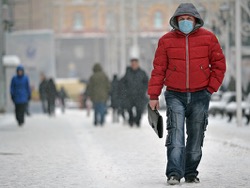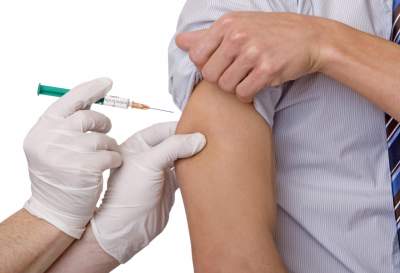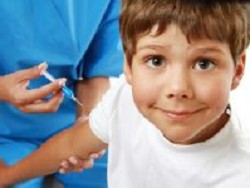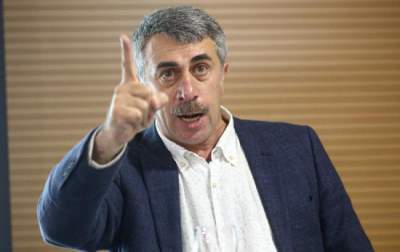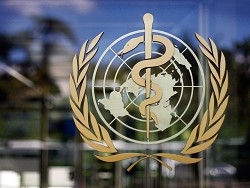
While information relating to the recommendations of the world health organization (who) on vaccinations, including hepatitis b, remains secret, freely available, there is a lot of literature, a suggestive of scientific incompetence, wrongdoing and even criminal offences.
The benefits of vaccines exaggerated and downplayed their toxicity.
So, recommendations for vaccine against influenza inspire a false impression that this vaccine is able to prevent infection of avian influenza.
After in September 1994 in France, according to the who guidelines, launched a campaign total to vaccination against hepatitis b, was opened a criminal investigation into claims of relatives whose loved ones (including children) died after vaccination.
Being appointed the French judge medical examiner, I spent thousands of hours studying this topic, and I had access to many confidential documents.
Although the court order my reports may become publicly available, some are my findings leaked, when they were transferred to the litigants.
Thus, some of my investigations can be seen in publications. The basis of this article lay the open letter of November 2005, the who Director-General, which have remained unanswered.
HEPATITIS B: EPIDEMIOLOGY
In February 2004 I read a letter from one of my colleagues from India (1), stating false information disseminated by who about the epidemiology of hepatitis b in his country.
Although I am not very well informed about the state of health in India, I was struck by the fact that the mechanisms of manipulation, described in the letter (lack of references, inappropriate extrapolations, monstrous exaggeration) were the same in my country, and in his.
And the results were the same: the experts ‘ proposal to include vaccination against hepatitis b into the national immunization schedule, despite the high cost and the unprecedented toxicity of the vaccine (2). At the heart of this striving for total vaccination are incredible errors.
In one article, published not less than 10 years after the instigation of the who launched the “information” program for universal immunization against hepatitis b, two distinguished representative of the Direction General de la Santé (DGS – the French equivalent of the control Center and prevention) has kindly acknowledged that the number of cases of hepatitis b in France could be priced incorrectly – the true number could be less than seven times (3).
Interestingly, the average American would have taken seriously the results of the census of the U.S. population, if they were shown that it ranges between 250 million and 1.75 billion inhabitants? Can we rely on “experts” in their assessments, including the enormous financial costs and threatening for newborns and children make mistakes that demographics would look ridiculous? (2,4).
In the same article (3) authors without a shred of irony acknowledged that data on chronic liver diseases have been extrapolated from the American reports.
And don’t need to be an expert in epidemiology, to understand that extrapolation of data on chronic liver diseases in the U.S. on the country of the New Beaujolais or Chateauneuf-du-Pape – in other words, the country with the highest level of disease associated with alcohol consumption, is not an example of scientific accuracy.
A recent example of when American expert from the who said that in India hepatitis b die of 250,000 people. He relied on the model of stratification by region and population groups with different income levels.
Skeptics from India, however, objected that the alleged model never existed, and the original figures must be “refined” towards far less alarming assessments (5).
Such techniques (similar to the exaggeration of numbers we saw in France) should be considered an obvious hoax, but their public disclosure did not cause any reaction by the who.
Despite the obvious tampering and serious consequences for public health of the French campaign (2,6), government of India 10 years later decided to include hepatitis b vaccine in the national immunization schedule (7). The decision was based explicitly on estimates of the who!
HEPATITIS B: VACCINE SAFETY
At the same time, who or its “experts” continue to publish encouraging data (8), directly referring to the safety study of the vaccine (9), which, according to the official report from February 2000, was rejected even by the French party.
Unfortunate typo in the second table of the study (and not fixed as far as I know) has resulted in halving the rising incidence of multiple sclerosis in vaccinated teenagers and young adults.
This error, of course, has been to arouse suspicion of fraud.
In promoting hepatitis b immunization who, obviously, is only used as a shield for commercial promotion of the vaccine. In particular, it was used by the Committeet for the prevention of viral hepatitis (cpwg), who created, sponsored(10) and which has been infiltrated by vaccine manufacturers.
After September 1998, information about the serious dangers of the campaign first received coverage in the French media, kpug created a group of “experts” that have provided the media with soothing opinions regarding the vaccine, reflecting the position of who.
However, some members were incompetent, as only employees of vaccine manufacturersand other vested interest was not awarded.
Five years later, to put an end to public anxiety over data loss from my first report to the court, the French Agency has prepared “an international conference of consensus”, even without the knowledge nor the expertise that were documenting the risk of the vaccine (11-15), or the man whose work initiated the work in this area (author of this article).
The findings from this conference, however, was the main argument of the who (and the CDC) in favor of the safety of a vaccine for hepatitis B.
To analyze the preliminary results of Hernan and others (16), which is a cornerstone in this issue, the organizers invited R. T. Chen from the U.S. Center for disease control.
Chen has published dozens of articles, denying the majority has doubts about the safety of vaccines, he is also the co-author of the study (17), the results of which are directly opposite to the results of Hernan.
A great way to achieve “consensus” at the conference – to limit the presence of those who agree with the desired conclusions.
There was not even a hint of democratic debate, at least for the species. P. van Damme (the organizer of the Cannes international Congress on the control of hepatitis b as a public health threat (18), which had a huge impact on subsequent vaccination policy in France and around the world), was first presented at the aforementioned conference as “epidemiologists from the us centers for control and prevention of viral hepatitis in the who in Antwerp”.
Later his place of work was named “public health and social medicine, Centre for prevention and control of viral hepatitis in who, University of Antwerp”. It is important to understand why French parents had to remain in the dark about the details provided by the readers of the Lancet in the same period of time, namely: “Many of the authors were the principal researchers in vaccine trials and acted as advisers to pharmaceutical companies… group Chairman, P. van Damme, conducted vaccine trials for several vaccine manufacturers…” (19).
Even more damning was shocking in its cynicism, the statement of business Manager of the pharmaceutical company “Beauchamp” made by a famous French magazine (20): “We started to raise awareness of the European experts who about hepatitis b in 1988 From that time to 1991, we financed epidemiological studies and came to a scientific consensus about the fact that hepatitis b is a major public health problem. The research was successful because in 1991, who published new recommendations for vaccination against hepatitis b”.
When the immunization campaign was in full swing, the official French “experts”, including part of DGS, did not hesitate to participate in the unwinding of the vaccine under the guise of “medical” publications in collaboration with the businessman (22).
For people all over the world will be a sad news that the experts who require the managers of vaccine manufacturers, in order to “realize” the presence of health challenges.
Moreover, according to the journalist who conducted the interview, the producer did everything to prevent publication of this stunning confession.
BIRD FLU
Awareness of questionable conduct who and its tragic consequences in terms of health and financial costs comes amid another scandal, which also involved the who, avian influenza.
It turns out that under the flimsy pretext of increasing the productive capacity of the producers persuaded the experts who recommend vaccination against ordinary flu, while it is obvious that such immunization may not provide any protection against bird flu.
In both cases the method was the same. First, to signal a false alarm about the inefficiency of targeted vaccination in the case of hepatitis b (22,23) and the need to increase vaccine production in the case of avian influenza.
Then to convince the who to take action based on false recommendations, emphasizing that everyone is at risk of becoming infected with hepatitis b or the flu is a serious disease that requires mass vaccination.
Currently experts criticized the who for from the veterinary medical problem inflated and not given to national agencies to take appropriate action in relation to animals (24,25) that it would be more effective and limit the spread of the epidemic.
Besides, the figures on fatal cases of influenza vaccination (26) together with the problem of information hiding suggests that irresponsible influenza vaccination has killed more people than bird flu.

